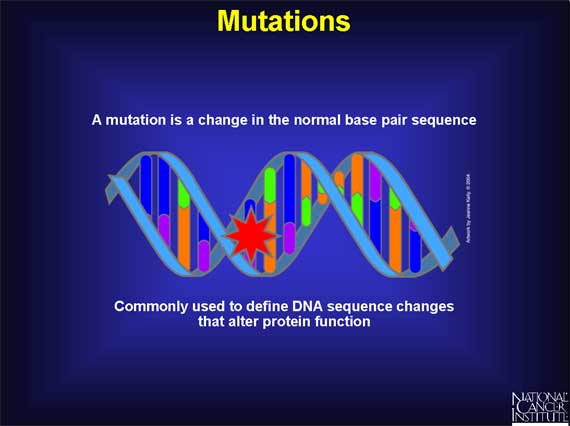|
All mutations are changes in the normal base sequence of DNA. These changes may
occur in either coding or noncoding regions. Mutations may be silent and have
no effect on the resulting protein. This is especially true if they occur in
noncoding regions of the DNA. But even base pair changes in the coding region
may be silent because of the redundancy of the code. For example, a mutation
within a codon may occur, yet still call for the same amino acid as was called
for earlier.
Mutations may involve a single base change--called a point mutation--or may
involve larger sections of DNA through deletions, insertions, or
translocations.

< Previous | Index | Next Slide > |